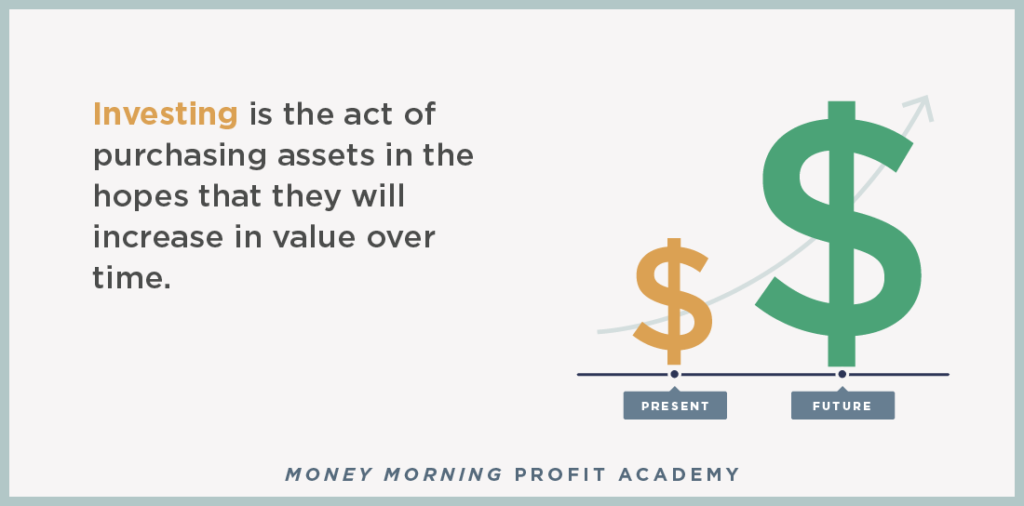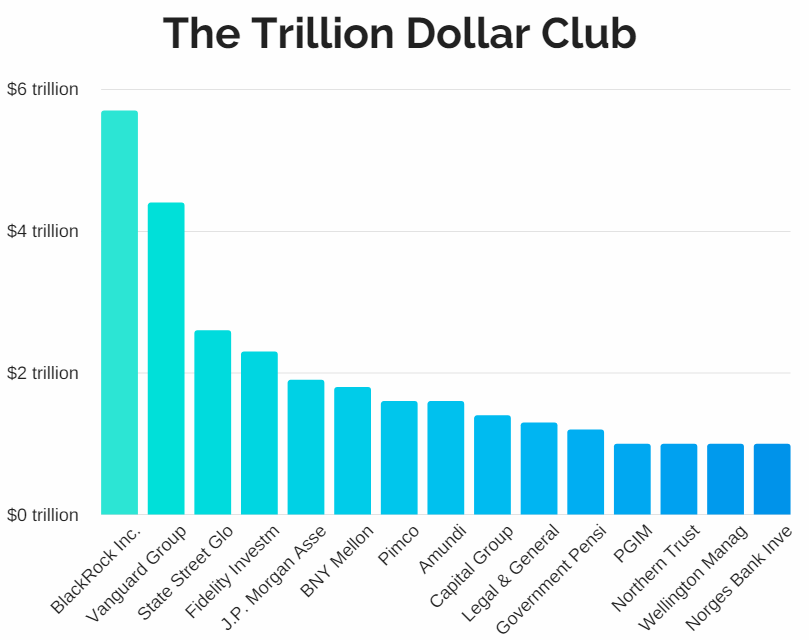
RBC Wealth Management, U.S. is a national network of more 2,100 financial professionals and 180+ office locations. The company manages client assets worth $542 million. The business of wealth management faces new challenges as well as disruptive competition. The industry is undergoing a critical transition, as client demographics are changing and the business must evolve to serve their needs. This requires a reorientation for wealth managers. Here are four industry figures who have helped to shape wealth management's future.
William Trout is a thought leader in innovation, technology strategy and wealth management. Trout's expertise is in data capture and analytics, as well as robotic process automation. He has an in-depth knowledge of financial markets, including areas like portfolio management as well as storage. His work has been featured in Bloomberg and The New York Times. He is a member of YPO and the Committee of 100. He is also an executive committee member of the Private Bank Global Leadership Team at Citi Private Bank, North America.

Steve McLaughlin, Building world-class asset management businesses. Steve McLaughlin has been advising industry leaders for more 30 years. He has worked with many financial services companies, including Chase Global Asset Management (Mellon Bank) and Chase Global Asset Management (Chase Global Asset Management). He co-founded The UHNWI Institute. He has spoken at industry conferences and written numerous detailed reports on wealth managers, private banks, and other topics. He was also a member of the Madonna Foundation's board of directors and the Tabitha Foundation's board of directors. He is a member of the Board of Directors of the Stransky Concert Series.
Hugh Lau: Beginning his financial services career in 2000, Lau worked with A.G. Edwards & Sons and Wells Fargo before joining the private banking practice of D.A. Davidson. He was on the Tabitha and Madonna Foundations board of directors and chaired Stransky Concert series. He also volunteers at the Lighthouse afterschool program in Lincoln. Lau Financial Group was established by Lau in association with LPL Strategic Wealth Services.
Michael Zeuner - Michael Zeuner has a rich history in wealth management and is a management consulting expert. Prior to joining WE Family Offices, Zeuner was a senior executive partner at GenSpring, responsible for its local family offices in the U.S. He was also a part of GenSpring’s operation committee. He joined WE Family Offices in 2013. He was previously the head of strategy and marketing for the global private banking business at Chase Manhattan Private Bank, prior to merging with JP Morgan. He is a member of the YPO, the Committee of 100 and the Private Bank Global Leadership Team at Citi PrivateBank, North America.

Bruce Weatherill - Weatherill is the non executive chairman of ClearView Financial Media. Weatherill also serves as a consultant for wealth management companies to help them with strategic issues. He is also an author of The Value of Trust. He is also the non-executive chairman of Fidelity Holdings UK.
FAQ
Why is personal financial planning important?
If you want to be successful, personal financial management is a must-have skill. We live in a world that is fraught with money and often face difficult decisions regarding how we spend our hard-earned money.
So why do we put off saving money? Is there nothing better to spend our time and energy on?
Yes and no. Yes, because most people feel guilty if they save money. It's not true, as more money means more opportunities to invest.
If you can keep your eyes on what is bigger, you will always be able spend your money wisely.
Controlling your emotions is key to financial success. You won't be able to see the positive aspects of your situation and will have no support from others.
Unrealistic expectations may also be a factor in how much you will end up with. This is because your financial management skills are not up to par.
Once you have mastered these skills you will be ready for the next step, learning how budgeting works.
Budgeting is the practice of setting aside some of your monthly income for future expenses. You can plan ahead to avoid impulse purchases and have sufficient funds for your bills.
Once you have mastered the art of allocating your resources efficiently, you can look forward towards a brighter financial tomorrow.
What is the fastest way you can make money in a side job?
To make money quickly, you must do more than just create a product/service that solves a problem.
It is also important to establish yourself as an authority in the niches you choose. It means building a name online and offline.
The best way to build a reputation is to help others solve problems. Ask yourself how you can be of value to your community.
After answering that question, it's easy to identify the areas in which you are most qualified to work. There are countless ways to earn money online, and even though there are plenty of opportunities, they're often very competitive.
You will see two main side hustles if you pay attention. One involves selling products directly to customers and the other is offering consulting services.
Each method has its own pros and con. Selling products and services can provide instant gratification since once you ship the product or deliver the service, payment is received immediately.
You might not be able to achieve the success you want if you don't spend enough time building relationships with potential clients. These gigs are also highly competitive.
Consulting is a great way to expand your business, without worrying about shipping or providing services. But, it takes longer to become an expert in your chosen field.
To be successful in either field, you must know how to identify the right customers. This takes some trial and errors. However, the end result is worth it.
How much debt are you allowed to take on?
It is essential to remember that money is not unlimited. Spending more than you earn will eventually lead to cash shortages. Savings take time to grow. So when you find yourself running low on funds, make sure you cut back on spending.
But how much can you afford? There is no universal number. However, the rule of thumb is that you should live within 10%. That way, you won't go broke even after years of saving.
This means that even if you make $10,000 per year, you should not spend more then $1,000 each month. If you make $20,000 per year, you shouldn't spend more then $2,000 each month. And if you make $50,000, you shouldn't spend more than $5,000 per month.
This is where the key is to pay off all debts as quickly and easily as possible. This includes student loans and credit card bills. Once these are paid off, you'll still have some money left to save.
You should consider where you plan to put your excess income. You may lose your money if the stock markets fall. However, if you put your money into a savings account you can expect to see interest compound over time.
For example, let's say you set aside $100 weekly for savings. In five years, this would add up to $500. You'd have $1,000 saved by the end of six year. You would have $3,000 in your bank account within eight years. You'd have close to $13,000 saved by the time you hit ten years.
At the end of 15 years, you'll have nearly $40,000 in savings. That's quite impressive. If you had made the same investment in the stock markets during the same time, you would have earned interest. Instead of $40,000 in savings, you would have more than 57,000.
It's crucial to learn how you can manage your finances effectively. Otherwise, you might wind up with far more money than you planned.
What side hustles are the most profitable?
Side hustle is a term used to describe any side income streams that can supplement your main source.
Side hustles are very important because they provide extra money for bills and fun activities.
Side hustles not only help you save money for retirement but also give you flexibility and can increase your earning potential.
There are two types: active and passive side hustles. Online businesses like e-commerce, blogging, and freelance work are all passive side hustles. You can also do side hustles like tutoring and dog walking.
Side hustles that work for you are easy to manage and make sense. A fitness business is a great option if you enjoy working out. Consider becoming a freelance landscaper, if you like spending time outdoors.
There are many side hustles that you can do. Side hustles can be found anywhere.
For example, if you have experience in graphic design, why not open your own graphic design studio? Or perhaps you have skills in writing, so why not become a ghostwriter?
Do your research before starting any side-business. So when an opportunity presents itself, you will be prepared to take it.
Side hustles aren’t about making more money. Side hustles can be about creating wealth or freedom.
And with so many ways to earn money today, there's no excuse to start one!
What is the easiest passive income?
There are many options for making money online. Most of them take more time and effort than what you might expect. How do you find a way to earn more money?
Finding something you love is the key to success, be it writing, selling, marketing or designing. You can then monetize your passion.
For example, let's say you enjoy creating blog posts. You can start a blog that shares useful information about topics in your niche. Then, when readers click on links within those articles, sign them up for emails or follow you on social media sites.
This is known as affiliate marketing and you can find many resources to help get started. Here are some examples of 101 affiliate marketing tools, tips & resources.
You might also think about starting a blog to earn passive income. It's important to choose a topic you are passionate about. However, once you've established your site, you can monetize it by offering courses, ebooks, videos, and more.
While there are many options for making money online, the most effective ones are the easiest. Make sure you focus your efforts on creating useful websites and blogs if you truly want to make a living online.
Once you've created your website promote it through social media like Facebook, Twitter LinkedIn, Pinterest Instagram, YouTube, and many other sites. This is known as content marketing and it's a great way to drive traffic back to your site.
What is the distinction between passive income, and active income.
Passive income means that you can make money with little effort. Active income is earned through hard work and effort.
You create value for another person and earn active income. If you provide a service or product that someone is interested in, you can earn money. You could sell products online, write an ebook, create a website or advertise your business.
Passive income is great as it allows you more time to do important things while still making money. Most people aren’t keen to work for themselves. Instead, they decide to focus their energy and time on passive income.
The problem with passive income is that it doesn't last forever. If you wait too long to generate passive income, you might run out of money.
If you spend too long trying to make passive income, you run the risk that your efforts will burn out. It's better to get started now than later. If you wait to start earning passive income, you might miss out opportunities to maximize the potential of your earnings.
There are 3 types of passive income streams.
-
There are several options available for business owners: you can start a company, buy a franchise and become a freelancer. Or rent out your property.
-
Investments - These include stocks, bonds and mutual funds as well ETFs.
-
Real Estate: This covers buying land, renting out properties, flipping houses and investing into commercial real estate.
Statistics
- Mortgage rates hit 7.08%, Freddie Mac says Most Popular (marketwatch.com)
- 4 in 5 Americans (80%) say they put off financial decisions, and 35% of those delaying those decisions say it's because they feel overwhelmed at the thought of them. (nerdwallet.com)
- U.S. stocks could rally another 25% now that Fed no longer has ‘back against the wall' in inflation fight (marketwatch.com)
- While 39% of Americans say they feel anxious when making financial decisions, according to the survey, 30% feel confident and 17% excited, suggesting it is possible to feel good when navigating your finances. (nerdwallet.com)
- Etsy boasted about 96 million active buyers and grossed over $13.5 billion in merchandise sales in 2021, according to data from Statista. (nerdwallet.com)
External Links
How To
How to Make Money Online
Making money online is very different today from 10 years ago. How you invest your funds is changing as well. There are many ways that you can make passive income. But, they all require a large initial investment. Some methods are simpler than others. However, there are many things you need to do before investing your hard-earned funds in anything online.
-
Find out what kind of investor you are. You might be attracted to PTC sites (Pay per Click), which pay you for clicking ads. Affiliate marketing is a better option if you are more interested in long-term earnings potential.
-
Do your research. Research is essential before you make any commitment to any program. Review, testimonials and past performance records are all good places to start. You don’t want to spend your time and energy on something that doesn’t work.
-
Start small. Do not rush to tackle a huge project. Instead, build something small first. This will help to you get started and allow you to decide if this type business is right for your needs. When you feel confident, expand your efforts and take on bigger projects.
-
Get started now! It's never too early to begin making money online. Even if a long-term employee, there's still time to build up a profitable portfolio of niche websites. All you need to get started is an idea and some hard work. Get started today and get involved!